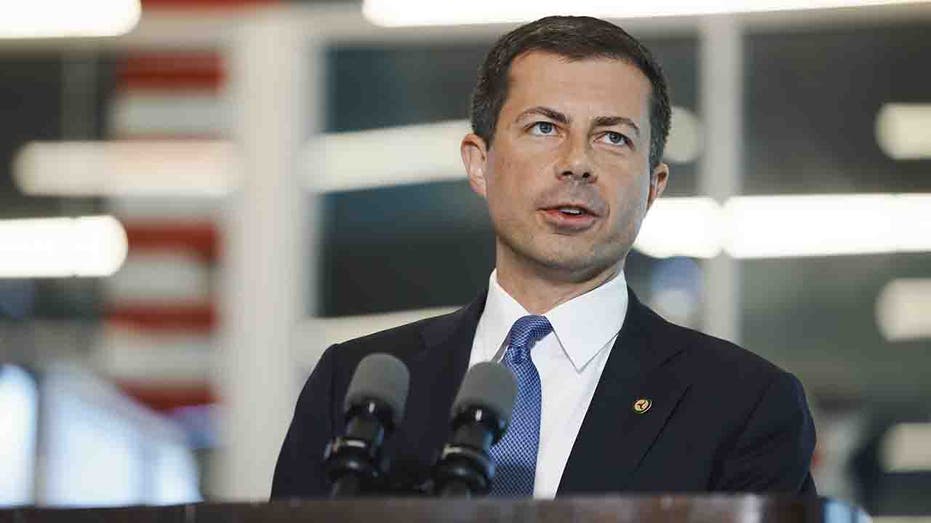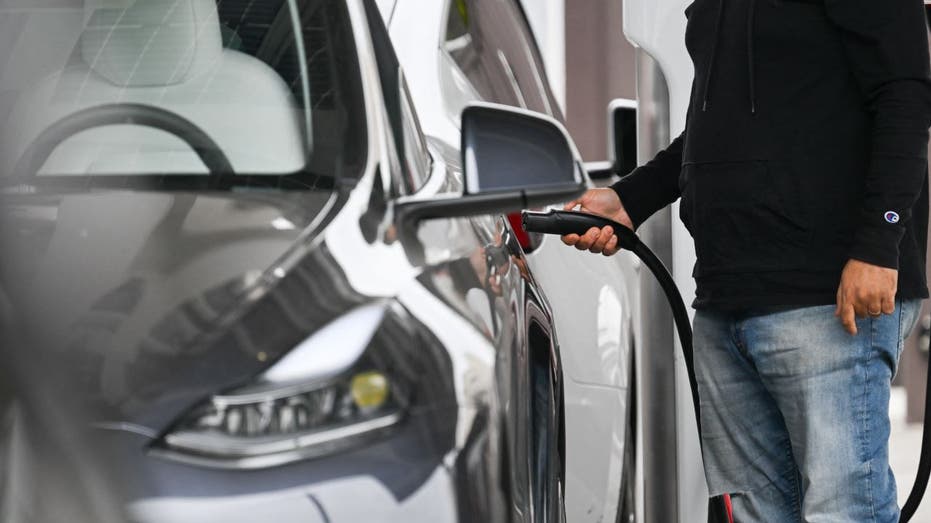Buttigieg defends Biden’s EV strategy after question on how only 8 federal charging stations have been built
Buttigieg says Biden focused on making sure EV revolution is American-led
We don’t have the electricity or energy to run EVs: Miller-Meeks
Rep. Mariannette Miller-Meeks, R-Iowa, discusses how lawmakers are concerned that China is benefiting from EVs on "The Evening Edit."
Transportation Secretary Pete Buttigieg defended the Biden administration’s push to build half a million electric vehicle (EV) charging stations along U.S. highways by 2030 after being questioned about how just eight have been built since President Biden signed the legislation two years ago.
Buttigieg appeared Sunday on CBS' "Face the Nation" where he tried to ease doubts about reaching Biden’s goal of 500,000 chargers by the end of the decade when asked why it wasn’t happening more quickly.
"Now, in order to do a charger, it's more than just plugging a small device into the ground," the secretary said. "There's utility work, and this is also really a new category of federal investment. But we've been working with each of the 50 states."
"Seven or eight, though?" host Margaret Brennan said with a laugh.
"Again, by 2030, 500,000 chargers," Buttigieg said. "And the very first handful of chargers are now already being physically built."
WILL BIDEN'S EV PUSH IMPACT PRESIDENTIAL ELECTION? AMERICANS WEIGH IN

Buttigieg said Biden is focused on making sure that the EV revolution is American-led. (Taylor Glascock / Bloomberg / File / Getty Images)
The Infrastructure Investment and Jobs Act, the massive infrastructure package Biden signed in 2021, earmarks $7.5 billion for EV charging programs, while the 2022 Inflation Reduction Act expands tax credits for EVs and charger installations.

Biden's goal is to build 500,000 charging stations along U.S. highways by 2030. (Patrick T. Fallon / AFP / File / Getty Images)
MANY US CONSUMERS STAYING AWAY FROM EVs DUE TO LACK OF CHARGING AVAILABILITY: REPORT
To date, only eight have been built since Biden signed the legislation, according to reporting by Autoweek.
Biden should ban Chinese EVs, not tax them: Furchtgott-Roth
Heritage Foundation economist Diana Furchtgott-Roth says Biden's tariffs on Chinese EVs are not enough to protect the domestic auto industry on "Varney & Co."
Buttigieg said "the EV revolution will happen with or without us" and that Biden is focused on making sure the EV revolution is led by America, not by a competitor like China.
GET FOX BUSINESS ON THE GO BY CLICKING HERE
He said the charging stations are just one factor that will help Americans transition from gas-powered cars to electric; the other is lowering the cost of EVs for the consumer.
Fox News Digital’s Thomas Catenacci contributed to this report.





















